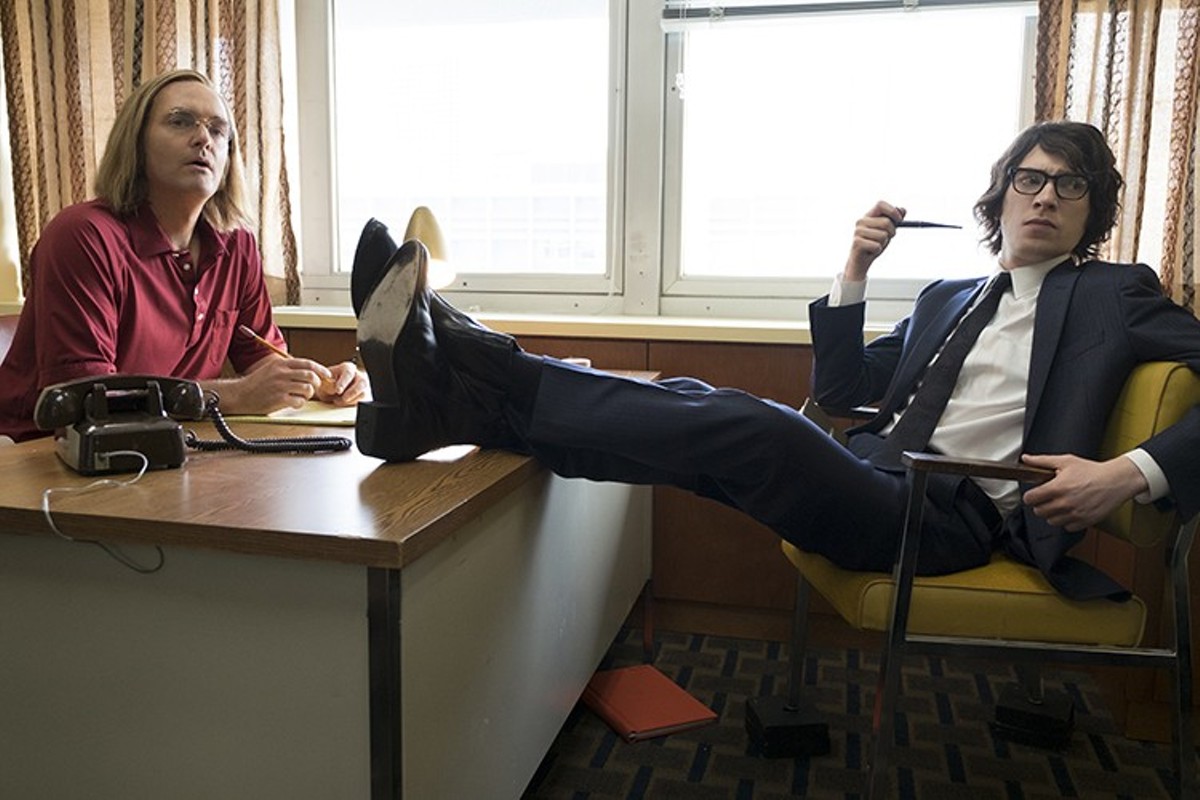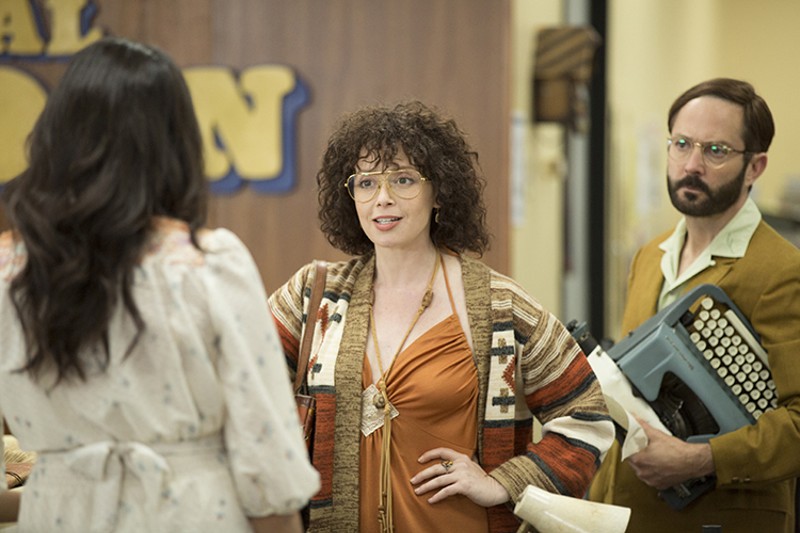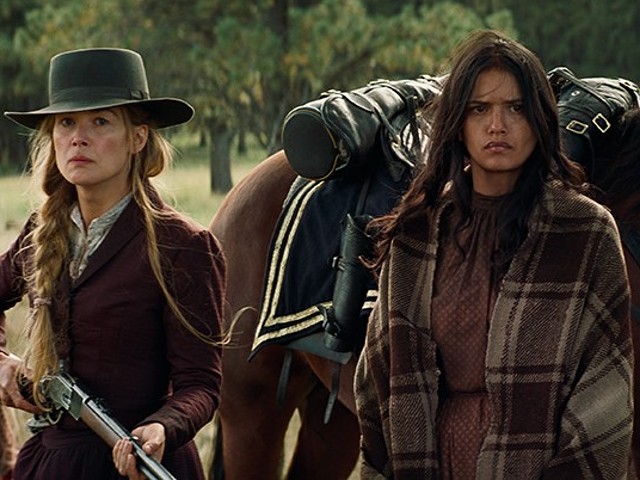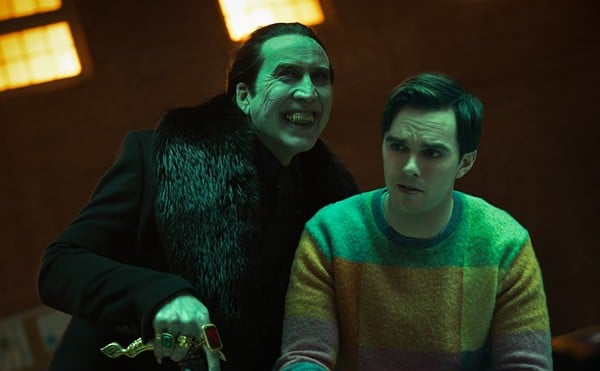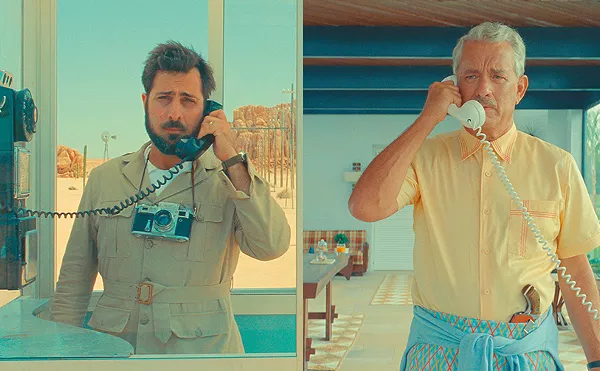Nearly three decades ago, postmodern political theorists caused a bit of a stir by announcing that society no longer defined itself by a sweeping vision of history. The "grand narrative" of the past was gone, replaced by a new sense of individualism: We all carry our own history now.
I'm in no position to argue for or against such a lofty position, but I have noticed this idea manifest itself in how movies now re-package our past. Historical films haven't completely disappeared, but they're few and far between, and even those that tackle recognizably "big" subjects — Lincoln, Jackie and Dunkirk, to name a few recent titles — tend to favor a few days from a life rather than the whole biography, a single battle rather than an entire war. These films are less history than they are a kind of historical tableaux, a stream of colorful figures fleshing out the personal moments behind the big headlines. If you're willing to forgo the finer points of historical accuracy, they give a strong sense of how we've chosen to refine or re-edit our collective memory once we're decades down the road.
The latest scrapbook of pop history, A Futile and Stupid Gesture is a pleasant ramble through the brief reign of 1970s counter-cultural comedy as it sprang through and from the life of Doug Kenney (played by Will Forte). Although he may be less than a household name, the film assures us that he is "the man who changed comedy forever."
Kenney was one of the founders of National Lampoon — not the tired brand of today that joylessly pumps out on-demand fratboy comedies, but the magazine that for most of the 1970s was a fierce, crude satiric force, skewering Baby Boomer sacred cows from high school yearbooks to The Lord of the Rings. And by making the magazine, Kenney helped create a multi-media empire that launched the careers of John Belushi, Bill Murray, Chevy Chase, Christopher Guest, Harold Ramis, Gilda Radner and many others. (The filmmakers realize that their story lends itself to a lot of name-dropping and even make a joke out of it.)
Directed by David Wain, this Gesture is simultaneously a biography of Kenney, an anthology of his comedic style and an attempt to revisit the Lampoon years through the satiric worldview he helped invent. Images from his works spill over into the real-world narrative. We see young Doug looking out at the bland, Eisenhower-era suburbia that will later feed the Lampoon's best-selling High School Yearbook. We see his Harvard years hinting at the toga parties he would enshrine in Animal House. We see Belushi and Murray stuck in their Animal House and Caddyshack roles, while Chevy Chase (played by Joel McHale) can't make a move without stumbling over his own feet.
Sometimes the life-imitates-Lampoon moments are contrived (did Kenney really solve so many awkward social situations by starting food fights?), but others are quite effective, as when the end of Kenney's marriage is recreated in the format of the magazine's popular Foto Funnies. Because the Lampoon staff so blatantly exploited and promoted their own personalities, it's hard to separate the jokes from real life. That was part of Kenney's talent and also a bit of a burden.
By 1976, Kenney was a 29-year-old millionaire, having sold his share of the magazine (he'd grow even richer a few years later with the success of Animal House). But with wealth came that great perpetual motion machine of insecurity and drugs.
If Kenney didn't quite reach the excesses of a long-haired, non-violent Tony Montana, you can't say he didn't try. The film gives wide berth to the cocaine-fueled excesses of Kenney's Hollywood years but doesn't really seem to judge him too harshly for them (which is just about right for a film about the late '70s). There are hints of psychological motivation (he's an outsider at Harvard, a Midwestern boy among the Ivy League elite, and he can never get his father to respect him), but the film carefully avoids making a serious stumble into bummer territory.
The story of Kenney and the National Lampoon and their joint influence on comedy is, admittedly, a relatively minor historical footnote (and those who want a more verifiable account can find it in the 2015 documentary Drunk Stoned Brilliant Dead). The makers of A Futile and Stupid Gesture understand that. They're not trying to draw a lesson from Kenney's rise and fall, perhaps because that's exactly the sort of thing the Lampoon would have eviscerated; they're just trying to show the world from his point of view.
Like A Futile and Stupid Gesture, most of the slices of pop history made into films these days avoid pithy lessons or definitive conclusions. Many of them end with footage comparing news footage of their real subjects with their movie counterparts or showing the figures as they are today, long after their nine days or fifteen minutes of fame has passed.
A Futile and Stupid Gesture skips that part, but the message is the same. This happened. We witnessed these things — the media circuses surrounding Tonya Harding and Bobby Riggs, the paranoia of the Nixon years or even simply, in the case of this film, the cultural landscape we've come to call "the 70s" — and they helped make up the backdrop to our lives. We don't need the grand sweep of the nation's history; we just want to revisit something we cared about, or even laughed at, once when we were young.

